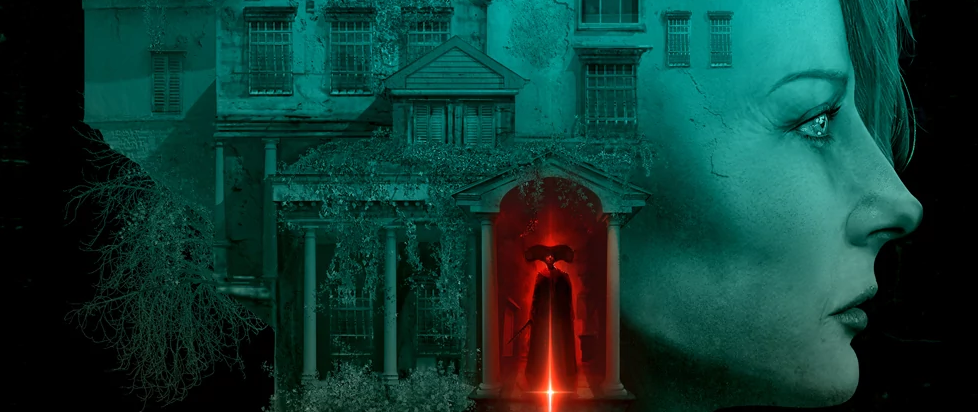
Remothered: Tormented Fathers perpetuates horror’s harmful anti-trans stereotypes
It was with great disappointment that I discovered the videogame Remothered: Tormented Fathers is yet another deeply transphobic piece of art in the world of horror.
Queer people, this author included, have a troubled relationship with horror because it often does the absolute most to demonize us. The depraved homosexuals of Alfred Hitchcock’s Rope and Rebecca, the homicidal gender deviants of Sleepaway Camp and Dressed to Kill, the grotesque nonconforming bodies of David Cronenberg’s filmography—we and other minority intersections are constantly cast as the villains in horror. Despite this, and for whatever reasons horror appeals to any of us, it is still a place where many of us have carved out a community.
We are making strides across the board in terms of creating more inclusivity—fiction like Victor LaValle’s The Ballad of Black Tom and Adrean Messmer’s Psychopomp and Circumstance come to mind—but we aren’t there yet, and we especially aren’t there within the horror gaming community. These conversations are at least happening on a semi-popular scale within film and literary discourse. It is well past time to bring it to the center of discussion around horror games.
Remothered, which began as an RPG Maker XP Clock Tower remake but became instead something of a spiritual successor instead, captivated many through its years of development with its art showcasing a gruesome atmosphere and promises of white-knuckle stalker-sim gameplay. At last its first chapter was released this year in January. It wasn’t perfect—the gameplay was a bit sloppy, the dialogue a little wonky. The unforgivingly constant fear of attack by the game’s antagonists leaves little encouragement for exploration, which is a problem in a game all about exploration. But Kickstarted indie games are never perfect from the outset, and there’s room for improvement in ensuing chapters.
Besides, much of this is shadowed by one thing Remothered does accomplish amazingly well: It is terrifying. The sense of creeping dread, the disturbed character designs (check out the Red Nun at your own peril), the brooding aesthetics, the shrieking music, it all comes together to absolutely nail what horror can accomplish on an interactive medium.
Which makes its trans-demonizing narrative all the more distressing.

The plot is this: Rosemary Reed is investigating the disappearance of a young girl named Celeste. She believes that an old man named Richard Felton is involved. One thing leads to another, and Reed infiltrates Felton’s mansion, finds out that Felton is a homicidal monster, and has to run around the mansion, avoiding his deathly grasp and uncover the mystery of what happened to Celeste. And to spoil the late-game twist it turns out that Felton was born a woman and forced to transition to male by her father. The story argues among other problematic points that “hormonal imbalances” are part of what causes Felton to start murdering people.
Horror about sex and gender shouldn’t be off limits. But Remothered isn’t even about sex and gender—it merely uses this crossing of embodied gender boundaries as a “punchline”, as a convenient excuse to further justify the antagonist’s insanity. It adds nothing to the story except a cheap shock to the mundane sensibilities of its intended audience. It is not only offensive but lazy. Forced transitioning isn’t even necessarily off-limits—though use of the concept leaves the creator walking on a fine line between genuine interest in the implications and sensationalism. Deserving criticism though it may also be, a forced transition story like Pedro Almodovar’s film The Skin I’m In at least is all about exploring sex/gender boundaries, and its sympathies always lie with the victim. Remothered‘s twist reveal is all about the sensationalism of the idea.
Remothered is a transparent homage to Silence of the Lambs. Rosemary Reed looks remarkably similar to Jodie Foster and this “gender-bending” twist is reminiscent of the serial killer villain of Lambs’ Buffalo Bill. Throughout, the game honors its lineage. Now, Lambs is an iconic story that’s worth revisiting, but Thomas Harris created Bill with a lot of harmful cultural assumptions about gender in mind. Buffalo Bill kidnaps women to skin them and make a “skin suit” out of them in order to “become a woman”. It sounds ridiculous when you lay it out like that, but it speaks to just how fearful people are of gender difference and speaks to what’s at the core of what is supposed to make the character scary—that Bill wants to be a woman and will perform all this depravity in order to be one. It’s the fear that drove North Carolina’s “bathroom bill” HB2 and the fear that trans people continue to put up with despite just trying to live. It’s a fear that horror creators cannot ethically perpetuate and one that horror consumers shouldn’t continue to abide.
Traditional horror aficionados love to quote that classic H.P. Lovecraft observation that the “the oldest and strongest kind of fear is fear of the unknown” without taking into account its context, that Lovecraft was a frothing racist who was less scared of extraterrestrial fungi beyond the ken of man than he was his black neighbors in Red Hook. The point is still well-taken, that much horror, indeed even effective horror, does tend to appeal to our fear of the other, of things outside our experience and scope—but it is well past time we examine and reevaluate the ethics of that approach to fear.
I don’t believe that developer Chris Daril intended to make a game about hatred of trans people, no more than the creators of games like Outlast (the DLC Whistleblower contains a villain who tries to turn the male protagonist “into a woman”, and the second entry in the series has a fat effeminate man and a mutilated androgyne as two of its primary enemies), The Evil Within, or Clive Barker’s Jericho intended to promote discrimination. But the effect amounts to the same thing: They create games which perpetuate harmful stereotypes against trans people and other subsets of marginalization by honoring a horror tradition of demonizing the other.

We can look to film for guidance, observe techniques on how to subvert the norm. Take the charming Tucker and Dale vs. Evil, a revisionist dark comedy horror film that deals with our assumptions about “hillbillys” in which the college kids, often our point-of-identification characters in the slasher films which it is satirizing, are more closely identified as villains. Here the reversal was played for laughs, but undeniably effective laughs. While you’d be hard-pressed to say that you’re as discriminated against for wearing overalls and living in the backwoods as you are for being trans, it does in its own way fight against stereotypes of otherness-as-evil. We can apply a similar framework to other “others”.
Critics across the media spectrum have pointed out the myriad ways in which we undermine minorities in horror for decades. From classic scholarly texts like the collection The Dread of Difference: Gender and the Horror Film (ed. Barry Keith Grant) to essays and fiction by queer horror authors like Dorian Dawes, the critiques are there and the revisions are there. What we need now are the further popularization and exploration of the ideas put forth, more horror that combats our dominant cultural assumptions about what is and isn’t scary that are also created by these stigmatized intersections of minority identities.
Remothered: Tormented Fathers has pieces of something great in its art direction, its soundwork, even its flawed gameplay, but the regressive attitude of its story restrains it from actually being great. I can’t recommend it in good faith, but hope that future installments in the series can at least attempt to correct its use of gender nonconformity as a means to illustrate the depraved and grotesque.



